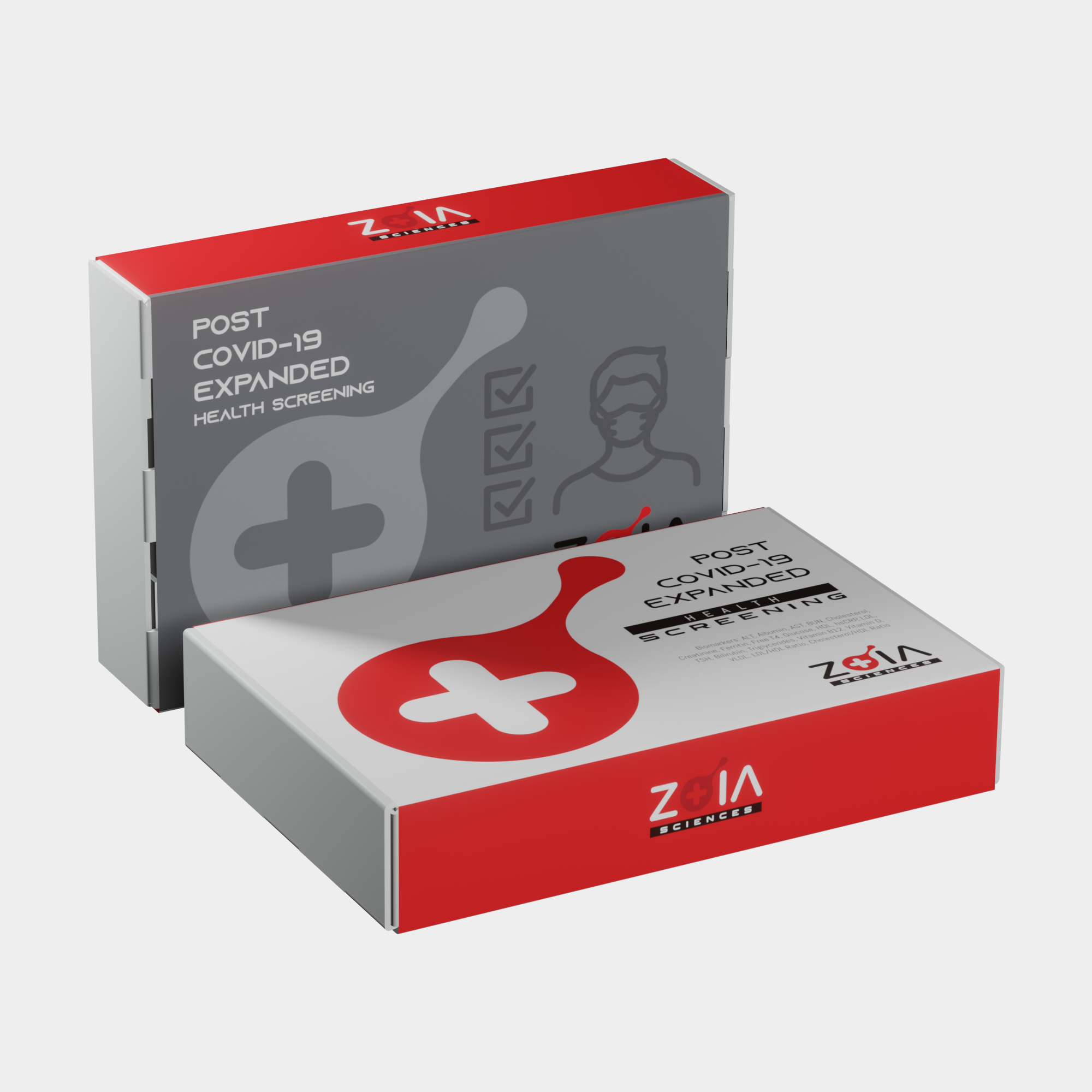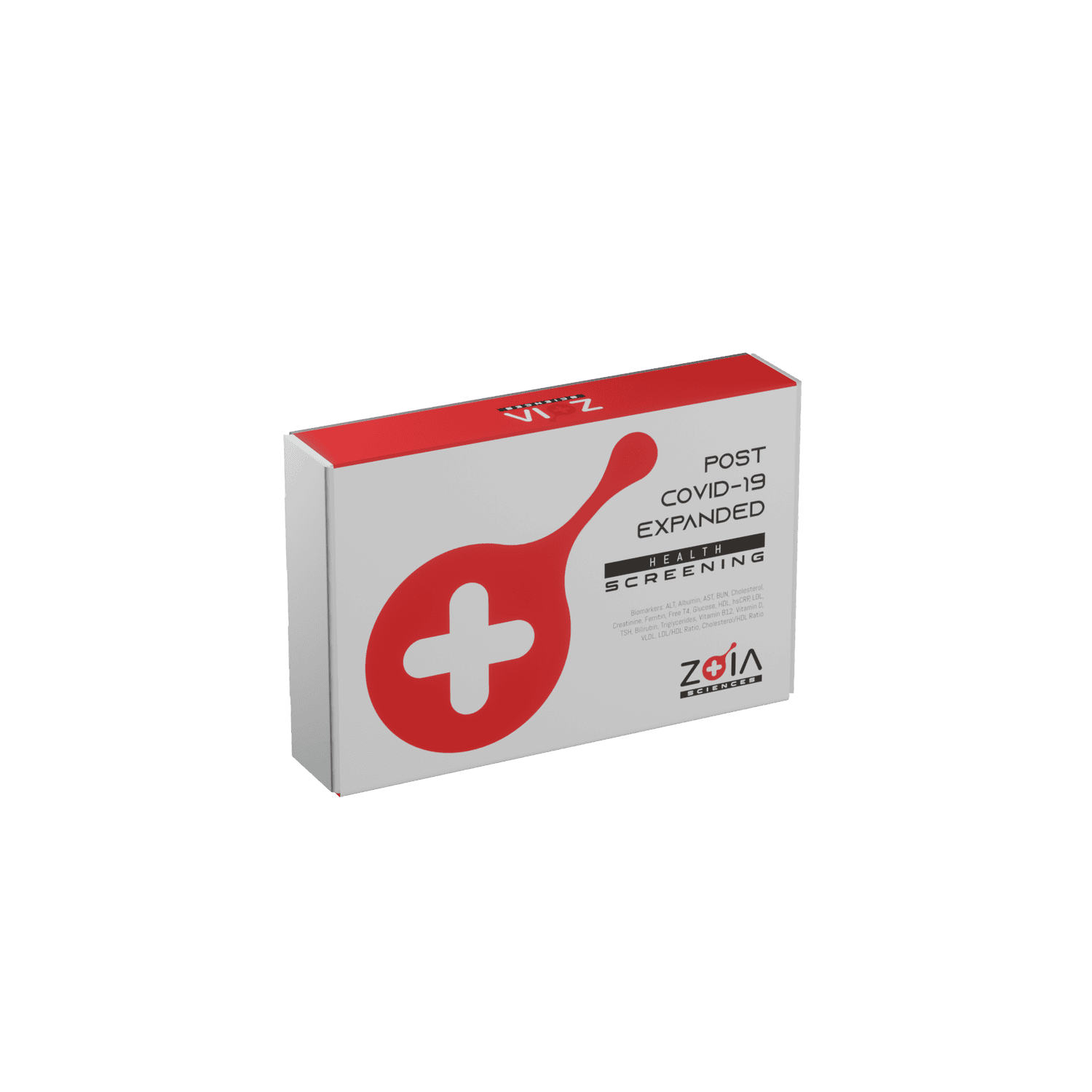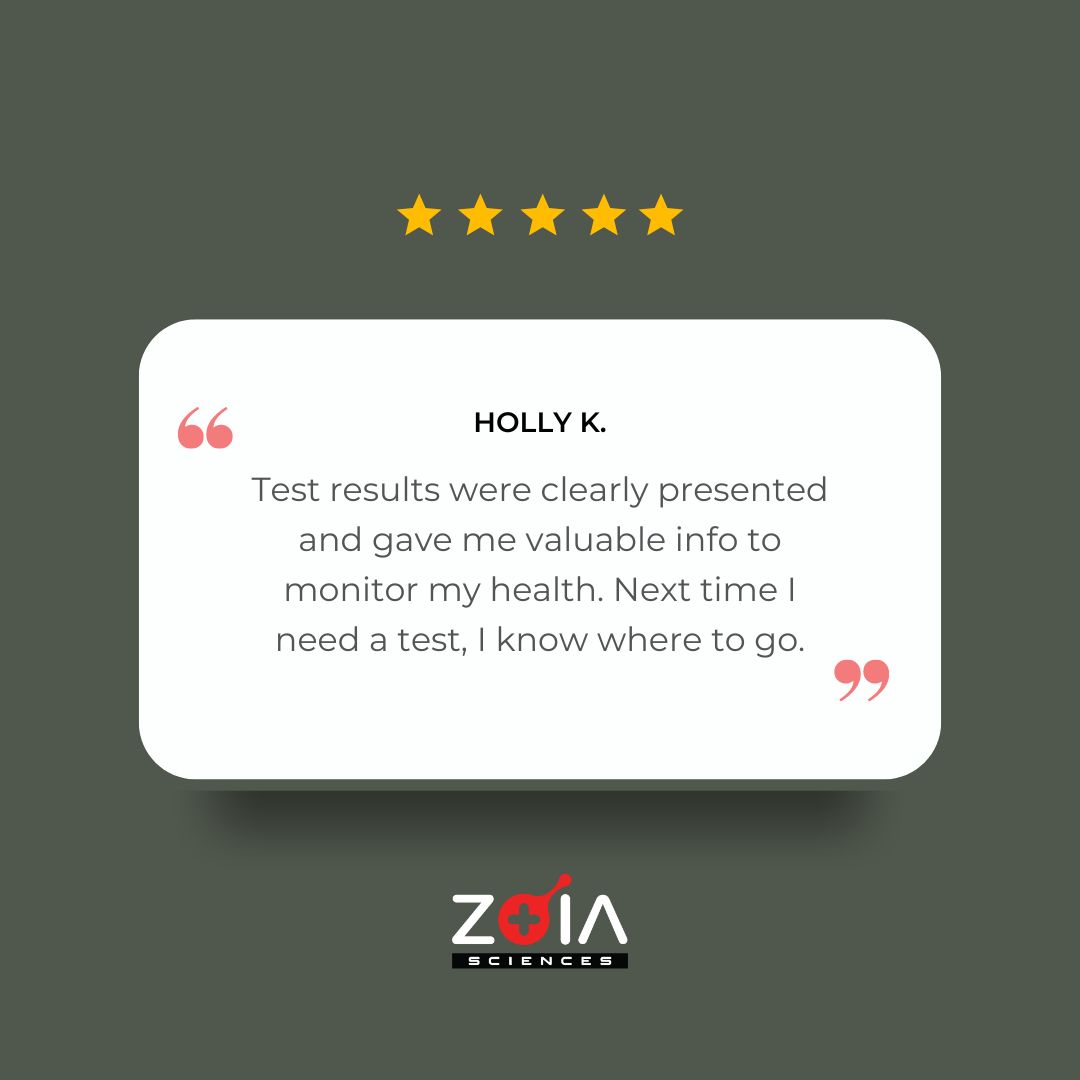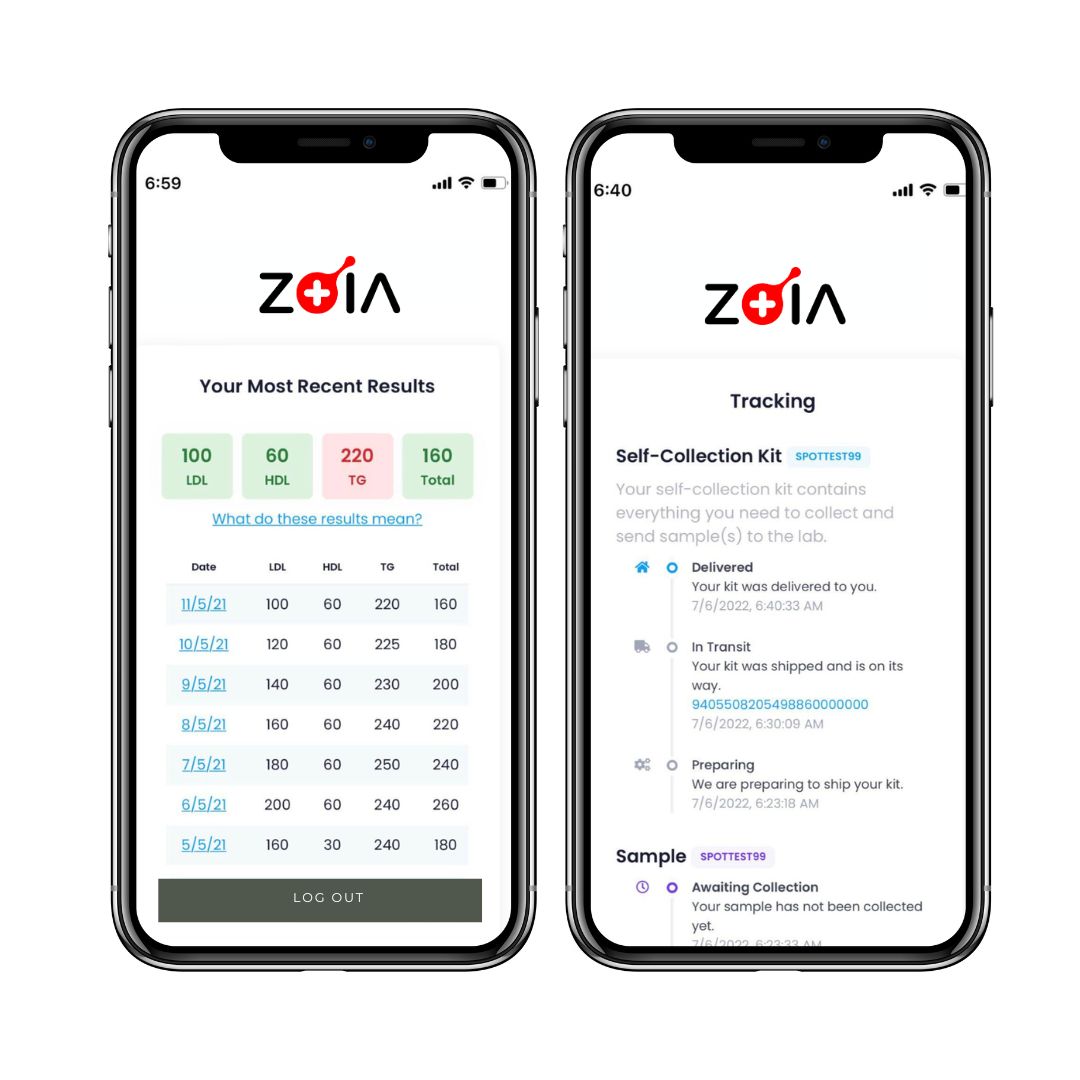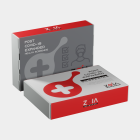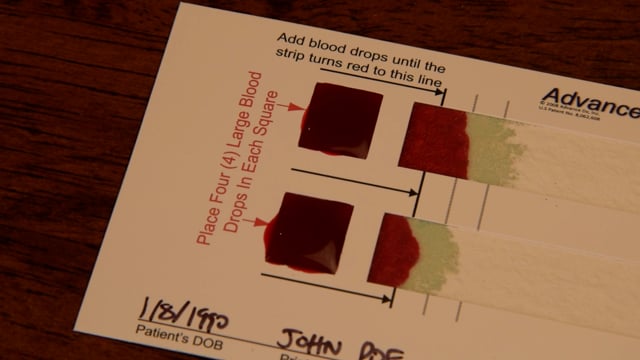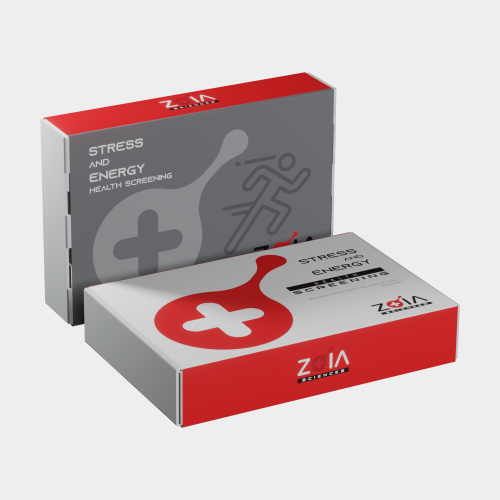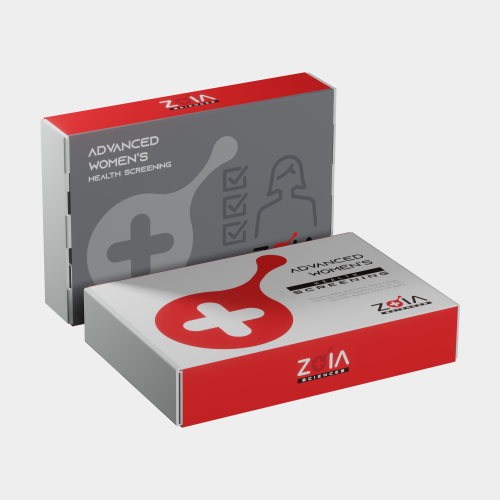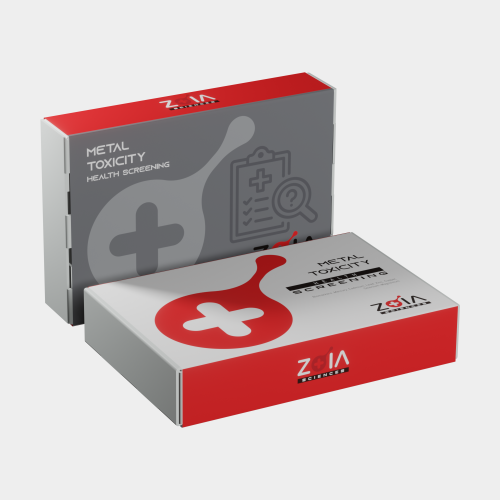Description
About Test
Individuals who have experienced a severe case of COVID-19 might suffer from symptoms that persist for an extended period of time, lasting weeks or months. Although the connection remains somewhat ambiguous, these prolonged symptoms could potentially elevate the risk of developing conditions such as diabetes, heart diseases, autoimmune diseases, and neurological disorders.
Discover if your persistent symptoms could be related to a post-COVID-19 condition. This comprehensive panel is designed for individuals experiencing persistent symptoms that COVID-19 may have triggered or worsened, enabling you to have an informed conversation with your healthcare provider.
**Note, this panel does NOT serve as a test for or a diagnosis of COVID-19.**
Although there is no clear pattern as to who may develop post COVID-19 symptoms or health complications, tests such as this can help determine if there is an increased risk for post COVID-19 health issues.
People who experience Post COVID-19 conditions most commonly report:
-Constant fatigue interfering with daily life
-Symptoms that worsen after physical or mental effort
-Fever
-Difficulty breathing or shortness of breath
-Cough
-Chest pain
-Fast-beating or pounding heart
-Brain fog, difficulty thinking or concentrating
-Headache
-Sleep problems
-Dizziness when you stand up
-Pins-and-needles feelings
-Change in smell or taste
-Depression or anxiety
-Diarrhea
-Stomach pain
-Joint or muscle pain
-Rash
-Changes in menstrual cycles
**Note, this panel does NOT serve as a test for or a diagnosis of COVID-19.**
ALT: ALT stands for alanine transaminase. It is an enzyme found mostly in the liver. An ALT test measures the amount of ALT in the blood. When liver cells are damaged, they release ALT into the bloodstream. High levels of ALT in your blood may be a sign of a liver injury or disease.
ALBUMIN: Albumin is a protein made by your liver. This test measures the amount of albumin in your blood. Low albumin levels can be a sign of liver or kidney disease or another medical condition. High levels may be a sign of dehydration.
AST: An AST blood test measures the amount of aspartate transferase in your blood.Your healthcare provider may use an AST blood test to help assess the health of your liver, but it can provide insight into other health conditions as well. When your cells get damaged, AST can leak into your bloodstream
BUN: The BUN test measures the amount of urea nitrogen in your blood. Urea nitrogen is a waste product that your kidneys remove from your blood. Higher than normal BUN levels may be a sign that your kidneys aren’t working well.
CHOLESTEROL: A cholesterol test is a blood test that measures the amount of cholesterol and certain fats in your blood. Cholesterol is a waxy, fat-like substance that’s found in your blood and every cell of your body. You need some cholesterol to keep your cells and organs healthy.
CREATININE: Creatinine is a chemical compound left over from energy-producing processes in your muscles. Healthy kidneys filter creatinine out of the blood. Creatinine exits your body as a waste product in urine. A measurement of creatinine in your blood or urine provides clues to help your doctor determine how well the kidneys are working.
FERRITIN: Ferritin is a protein that stores iron for future use when the body needs it most. While an iron test gives the current amount of iron in your blood, testing Ferritin measures your body’s overall iron storage and determines if you have a healthy amount of iron in your body.
FREE T4: A thyroxine (T4) test is a blood test that helps diagnose thyroid conditions and how well your thyroid is functioning. Your overall thyroid function can affect your weight, heart, body temperature, muscle strength, and even your mood.
GLUCOSE: A blood glucose test measures the level of glucose (sugar) in your blood. This is important to monitor to prevent metabolic syndrome and other diabetic conditions.
HDL: HDL measures the amount of cholesterol found inside high-density lipoproteins (HDL) in a sample of your blood. HDL is often known as “good cholesterol” because it is associated with better cardiovascular health.
hsCRP: This high sensitivity test measures C-reactive protein (CRP) levels. (CRP) is a substance found in the blood that increases when there is inflammation within your body. Studies have shown that a single elevated hs-CRP level may be predictive of a myocardial infarction, stroke, peripheral vascular disease, and sudden cardiac death.
LDL: low-density lipoprotein (LDL) cholesterol is sometimes called the “bad” cholesterol because too much of it may clog your arteries with a buildup of plaque. Testing this helps determine how much LDL cholesterol is in your blood. This test can help you monitor your risk of heart disease, stroke, diabetes, and other health conditions.
TSH: A TSH test measures the amount of thyroid stimulating hormone (TSH) in your blood. TSH is produced by the pituitary gland. It prompts the thyroid gland to make and release thyroid hormones into the blood.
BILIRUBIN: This test test measures bilirubin levels in your blood. It is used to help gauge the functioning of your liver. High or low bilirubin levels might indicate that some part of the process of breaking down and clearing old red blood cells isn’t working correctly.
TRIGLYCERIDES: Measuring triglycerides is important because triglycerides are a type of fat found in your blood, and their levels can provide critical information about your overall cardiometabolic health.
VITAMIN B12: Vitamin B12 plays a key role in some of the body’s most essential functions, from making red blood cells and DNA to supporting the nervous system. A vitamin B12 deficiency can cause fatigue, muscle weakness, intestinal problems, numbness, memory loss and anemia.
VITAMIN D: This vitamin D blood test measures 25-hydroxyvitamin D (25-D), which is the most accurate indicator of vitamin D levels stored in your body. A long-term deficiency in vitamin D can result in fatigue, bone pain, and even depression.
VLDL: A VLDL (Very Low-Density Lipoprotein) blood test measures the amount of VLDL cholesterol in your blood. VLDL is one of the types of lipoproteins that carry cholesterol and triglycerides through your bloodstream.
LDL/HDL RATIO: The LDL/HDL ratio is a measure used to assess cardiovascular health by comparing the levels of low-density lipoprotein (LDL) cholesterol to high-density lipoprotein (HDL) cholesterol in your blood.
CHOLESTEROL/HDL RATIO: The cholesterol/HDL ratio test is a measure used to assess an individual’s risk for cardiovascular disease by comparing the total cholesterol level to the high-density lipoprotein (HDL) cholesterol level
Information
Individuals who have experienced a severe case of COVID-19 might suffer from symptoms that persist for an extended period of time, lasting weeks or months. Although the connection remains somewhat ambiguous, these prolonged symptoms could potentially elevate the risk of developing conditions such as diabetes, heart diseases, autoimmune diseases, and neurological disorders.
Discover if your persistent symptoms could be related to a post-COVID-19 condition. This comprehensive panel is designed for individuals experiencing persistent symptoms that COVID-19 may have triggered or worsened, enabling you to have an informed conversation with your healthcare provider.
**Note, this panel does NOT serve as a test for or a diagnosis of COVID-19.**
When to test
Individuals who have experienced a severe case of COVID-19 might suffer from symptoms that persist for an extended period of time, lasting weeks or months. Although the connection remains somewhat ambiguous, these prolonged symptoms could potentially elevate the risk of developing conditions such as diabetes, heart diseases, autoimmune diseases, and neurological disorders.
Discover if your persistent symptoms could be related to a post-COVID-19 condition. This comprehensive panel is designed for individuals experiencing persistent symptoms that COVID-19 may have triggered or worsened, enabling you to have an informed conversation with your healthcare provider.
**Note, this panel does NOT serve as a test for or a diagnosis of COVID-19.**
What's measured
Individuals who have experienced a severe case of COVID-19 might suffer from symptoms that persist for an extended period of time, lasting weeks or months. Although the connection remains somewhat ambiguous, these prolonged symptoms could potentially elevate the risk of developing conditions such as diabetes, heart diseases, autoimmune diseases, and neurological disorders.
Discover if your persistent symptoms could be related to a post-COVID-19 condition. This comprehensive panel is designed for individuals experiencing persistent symptoms that COVID-19 may have triggered or worsened, enabling you to have an informed conversation with your healthcare provider.
**Note, this panel does NOT serve as a test for or a diagnosis of COVID-19.**
"NEW TO SELF-COLLECTED TESTING?
Learn How It Works
Take control of your health. Self-collected tests allow you to test in the comfort of your own home when it is convent for you.

